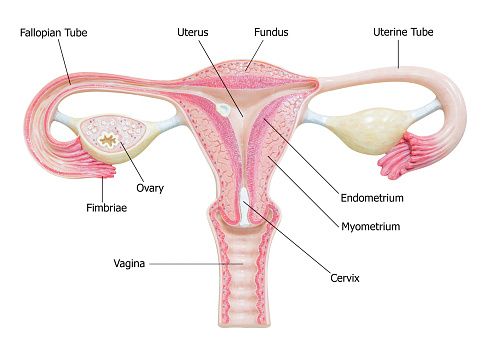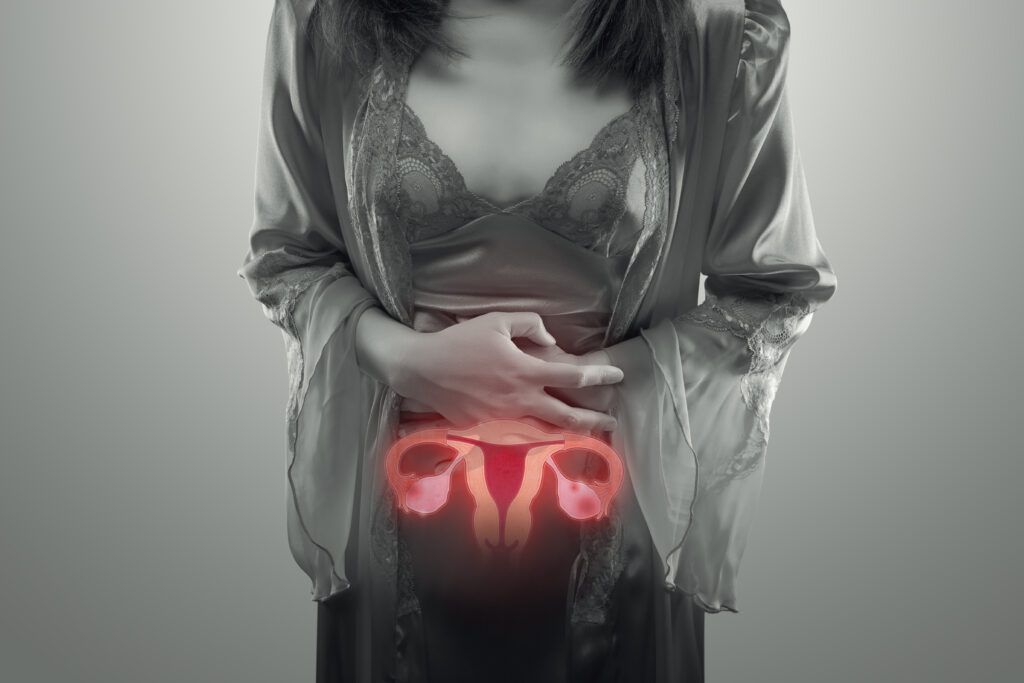Period Symptoms and When to Be Concerned
Period pain and symptoms are very common. Everyone’s body is different as is their period experience. Even your symptoms can change at different points in your life. Dysmenorrhea is the medical term for painful menses. Multiple things may affect the symptoms you have such as stress, weight, and health.
The symptoms are most likely caused by the decrease in estrogen and progesterone to stimulate your body to expel the endometrium from your womb/uterus.
The endometrium is the lining of the uterus where a fetus implants if you become pregnant. If you don’t become pregnant the body needs to shed it. It renews itself every month. Some diseases can cause more issues such as endometriosis. Other disorders are an excessive amount of period symptoms such as premenstrual dysphoric disorder (PMDD) and premenstrual syndrome (PMS).
What is endometriosis?
Endometriosis is inflammation of the lining of the uterus. Sometimes the endometrium travels outside of the uterus/womb and implants on other organs in your body such as your bladder, intestines and outside of your ovaries. When you have your menses it will now stimulate that endometrium that is in the wrong place to become inflamed and can cause a lot of pain when it squeezes those organs. Ordinarily, the hormones that cause your period are “squeezing” the endometrium inside of the uterus to help it exit the body, but this endometrium is not inside of the uterus.
There are multiple treatments available for endometriosis. Surgery helps to remove the misplaced endometrium. Birth control or hormone therapy sometimes helps decrease the severity of endometriosis. Anti-inflammatories such as ibuprofen and naproxen are also used to decrease the inflammation of endometriosis.

What is Premenstrual Syndrome (PMS)?
PMS is the physical or emotional symptoms of menses that occur after ovulation and before the period starts. They often last about 6 days. They include all of the symptoms common with a period such as fatigue, bloating, cramping and mental health changes but they can interfere with normal functioning in life. PMS stops after menopause and during pregnancy.
What is Premenstrual dysphoric disorder (PMDD)?
PMDD is a change in mood and increase in period symptoms or PMS that causes significant distress. While it can occur at any time during a woman’s childbearing years it is most common between 25-35 years of age. It is estimated that 3-5% of women will suffer from PMDD. This can be serious and increases the risk of suicide and thoughts of suicide. The cause is unknown though researchers have found a genetic change in women with PMDD.
These patients are also at greater risk of postpartum depression. It is known to be more common in smokers and those with a family history of PMDD. It also only happens between ovulation and menstruation, resolving after the period. The first line treatment is a selective serotonin re-uptake inhibitor (SSRI) which is an antidepressant. Studies have NOT shown benefits with exercise and other regular PMS treatments. This is very serious. Please do not wait if you have this disease and seek help now.
When is it normal to experience period symptoms?
Symptoms of menses may come at different times such as a few days before the start, during or after the period. Other symptoms are mid-cycle.
Here are the most common symptoms:
- Breast tenderness. This usually happens a few days prior to your menses and lets you know what is about to come!
- Nausea. This can come at any point during your cycle.
- Headaches. These are sometimes severe enough to be migraines. Migraines during menses are a contraindication to taking hormonal birth control because it may be a sign of a vascular issue in your brain. If this is the cause and you take hormonal birth control you may have a stroke or other serious complications. Always talk to your doctor prior to starting any hormones.
- Abdominal cramping can come at any time during your period and is very common. It is due to the contractions of your muscles to expel the endometrium.
- Back pain is also very common and can come at any time. It is also due to the hormonal stimulation of contractions to help your body expel the endometrium. This endometrium needs to be pushed through a small hole in your cervix, called an os, into your vagina and then out of the body. The cervix is a large strong muscle that keeps a baby in your uterus until you are ready to give birth. It is then that the cervix dilates the small hole/os to a large 10 cm hole allowing the baby to pass through into the vagina and then our world! The pain of contractions is the dilation, or opening, of the cervix. You basically go through this every month during your menses but on a much smaller scale!
- Mental health changes are another common side effect of periods. They often begin prior to your period. You may become anxious, angry, or depressed. It is called Premenstrual syndrome (PMS) if it affects your life. There are simple antidepressant/anti-anxiety medications that you can take on the days before your period to help alleviate these symptoms.
- Fatigue can happen at any point and can be debilitating for some.
- Acne can increase on the back, chest or face.
- Diarrhea
There is a movie called No Men Beyond This Point that is about a utopian world where men were no longer needed because women were able to self-fertilize and only had girls. The world eventually became run by women who instituted a 3-day period holiday every month as all of the women’s menses had synced up to the same time a month! It’s quite a funny movie and I highly recommend it for date night!
While that is probably never going to happen it would be the ultimate aid for PMS. Until then let’s talk about different strategies that may help ease the burden of your monthly menses.
Try these remedies for your symptoms:
- Rest. If you need to take a nap during the day do it. This is one week a month. Take care of yourself. If there is a lot to be done the people around you need to step up. Don’t be afraid to ask. If family members can do chores you would ordinarily do then let them know!
- Increased physical activity—while you may not feel like it exercise of any form has been proven time and again to decrease cramping, pain, fatigue, mental health issues, and bloating associated with menses.
- Fluids—yes, increase your water intake—this seems to be the answer to many issues in life!
- Heat sources to your back and lower abdomen can be very helpful for discomfort.
- Tums or other antacids may help with nausea and diarrhea.
- Over-the-counter analgesics such as Tylenol may help with the headaches and Motrin or naproxen work well for the cramping. Again, always talk to your doctor before taking any medicine even if over-the-counter.
- Yoga is a great remedy for many things including all of the average side effects of your period. Try low back and easy abdominal poses such as cat/cow and happy baby.
- Over-the-counter acne medication such as Benzac, Salicylic acid or Differin gel can be very helpful for the acne increased with menses.
- Prescription medications:
- Hormonal birth control
- Antidepressant medications such as Celexa or Paxil
- Anti-inflammatory medications such as Anaprox DS
Signs you should talk to your doctor immediately:
- Headaches, especially if they are new, changing, not helped by over-the-counter analgesics or severe
- Symptoms affecting your activities of daily living and decreasing your ability to function in your normal life
- Excessive bleeding
- Irregular menses
- Excessive fatigue
- Excessive pain—This could be a sign of many things from endometriosis to a stenotic cervix, which is where the hole in that big muscle that holds a baby in your womb has scarred over. It will make it difficult for the cervix hole, called an os, to open and allow your period out of your body.
Conclusion:
Period pain and symptoms can change throughout your life. It can be excruciating but it doesn’t have to rule your life. Try the simple remedies above. Always talk to your doctor if you have any concerns. If you or anyone you know may possibly have PMDD please see a doctor immediately.
If you have any thoughts of hurting yourself or others please seek immediate help. Below are some contacts available 24/7.
USA Dial: 988 988lifeline.org
UK and Ireland Dial: 0800 689 5652
https://www.nhs.uk/mental-health/feelings-symptoms-behaviours/behaviours/help-for-suicidal-thoughts/
Canada Dial: 1-833-456-4566
